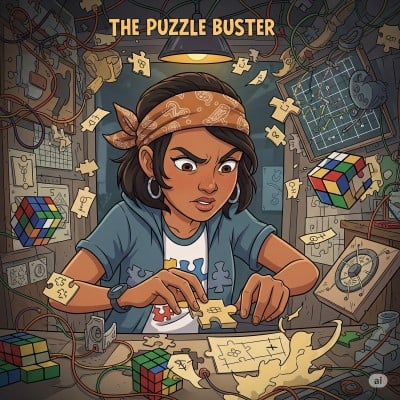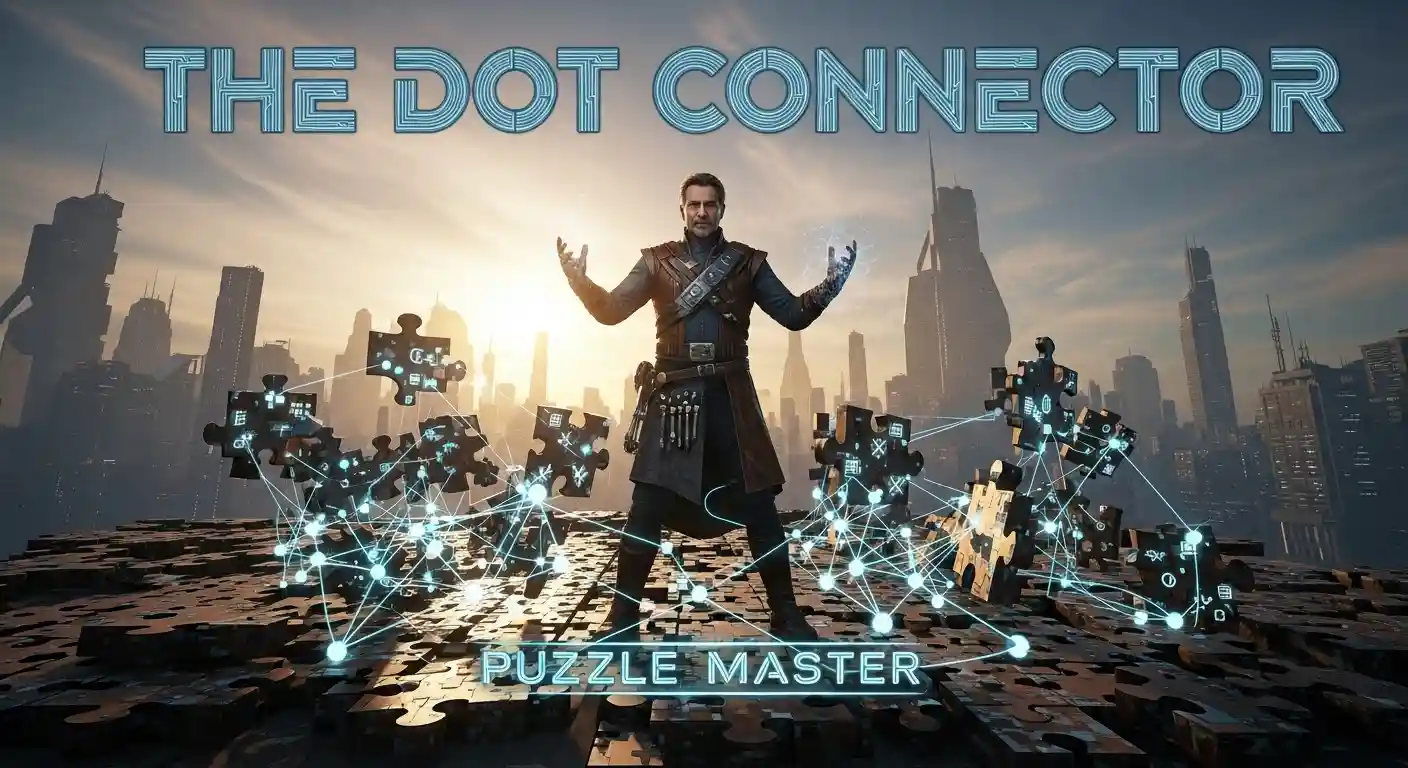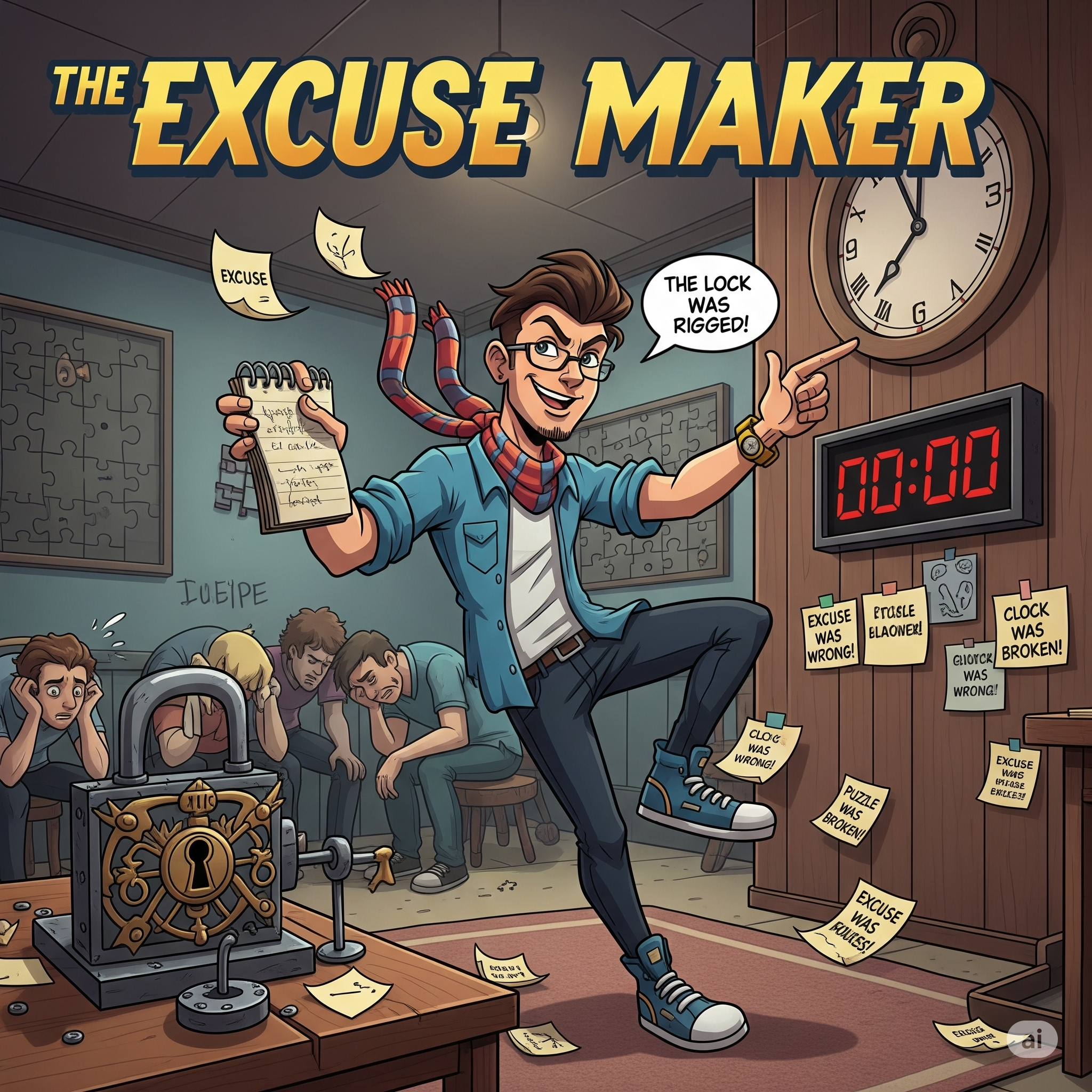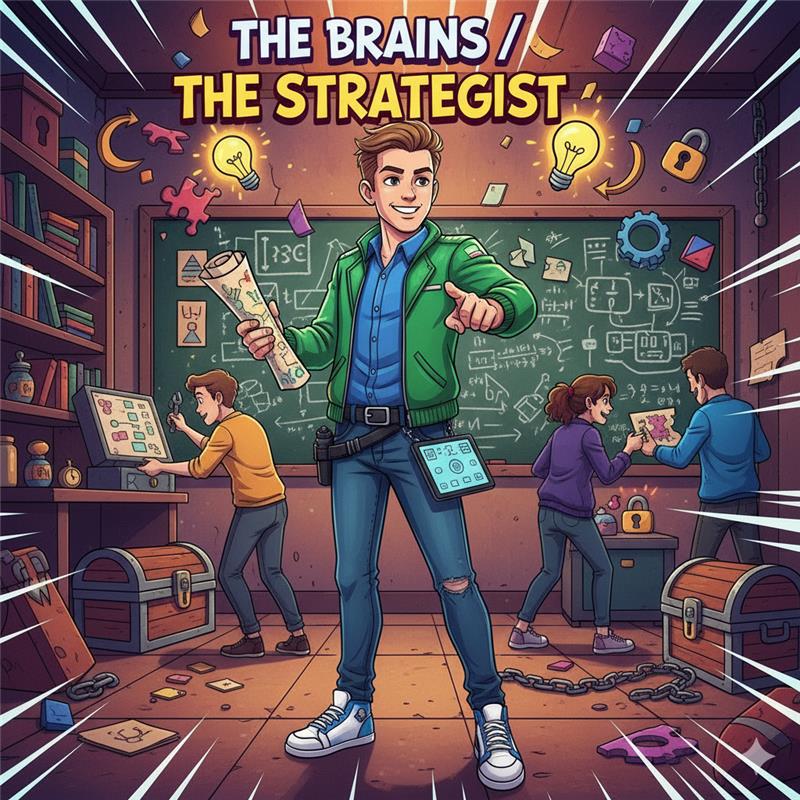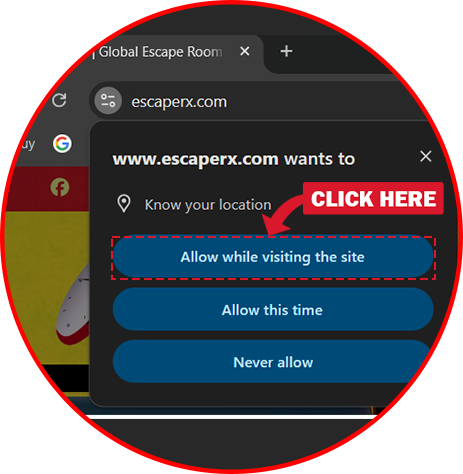In the dynamic world of escape rooms, teams succeed not just through speed or luck, but through persistence and problem-solving grit. Every group benefits from a variety of roles Searchers, Strategists 🔍, Communicators but when the puzzles grow difficult and frustration threatens to derail progress, one persona rises to the occasion: the Puzzle Buster 🧩.
The Puzzle Buster is more than just a puzzle solver 💥. They are the embodiment of resilience, focus, and tenacity. While other teammates may become discouraged or drift toward new challenges when a problem feels too complex, the Puzzle Buster thrives on these very moments 🤔. For them, difficulty is not a barrier but an invitation an opportunity to dig deeper, think harder, and push through until the solution is uncovered 🗝 ️.
What sets the Puzzle Buster apart is their mindset. They do not see a tough puzzle as an obstacle but as a test of will 🛡 ️. Where others might declare something “unsolvable,” the Puzzle Buster calmly, methodically, and sometimes obsessively keeps working until progress is made. This persistence often transforms the atmosphere of the room 🎟 ️, instilling in the entire team a sense of determination. When one person refuses to give up, it inspires everyone else to keep going 🔄.
The Puzzle Buster’s strength lies not only in raw intellect but also in their ability to focus under pressure ⏰. Escape rooms are designed to be distracting clocks tick loudly, teammates shout over each other, and red herrings pull attention in every direction. Amid the chaos, the Puzzle Buster narrows their attention and tunes out the noise 📢. They concentrate deeply, holding onto logic and structure while others may be swept away by urgency. In doing so ➡ ️, they anchor the team, preventing panic from eroding progress.
Another invaluable contribution of the Puzzle Buster is their problem-solving stamina. Escape rooms often feature puzzles that demand sustained effort: intricate logic chains, challenging riddles 🌈, or layered mechanical contraptions. Many players enjoy dabbling with such puzzles but lose interest if the solution doesn’t emerge quickly. The Puzzle Buster, however, thrives on prolonged engagement. They know that persistence is often the key to breakthroughs that solutions rarely arrive in the first five minutes, but often appear to those who stay with the challenge long enough 🔥.
Yet the Puzzle Buster is not just about personal victory; they are also a team catalyst. Their determination has a ripple effect 🌊, lifting morale during difficult moments. A frustrated team might be tempted to waste time second-guessing themselves, but seeing the Puzzle Buster’s steady progress reminds them that perseverance works. Even when the Puzzle Buster hasn’t yet cracked the solution, their visible effort reassures teammates: “We’re still in this. We can still win.” This psychological boost can be just as valuable as the eventual solution 🏆 🙌.

